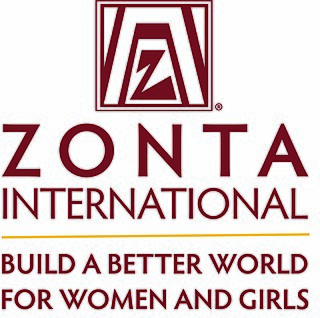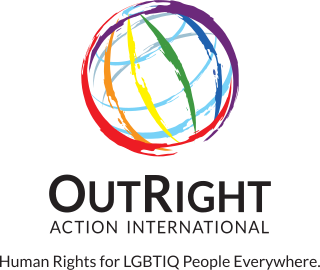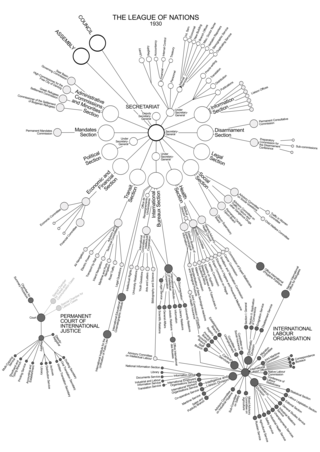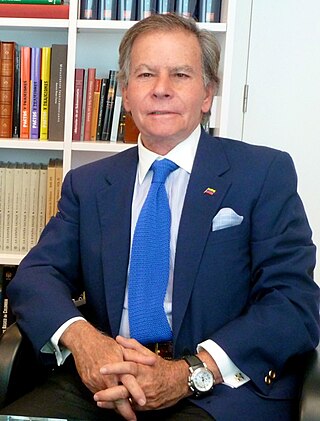
The International Chamber of Commerce is the largest, most representative business organization in the world. ICC represents over 45 million businesses in over 170 countries who have interests spanning every sector of private enterprise.
The consultative status is a phrase that has been in use since the establishment of the United Nations and is used within the UN community to refer to "Non-governmental organizations (NGOs) in Consultative Status with the United Nations Economic and Social Council". Also some international organizations could grant Consultative Status to NGOs. Organization for Security and Co-operation in Europe (OSCE) could grant Consultative Status in the form of "Researcher-in-residence programme" : accredited representatives of national and international NGOs are granted access to all records and to numerous topical compilations related to OSCE field activities.

The Convention on the Elimination of all Forms of Discrimination Against Women (CEDAW) is an international treaty adopted in 1979 by the United Nations General Assembly. Described as an international bill of rights for women, it was instituted on 3 September 1981 and has been ratified by 189 states. Over fifty countries that have ratified the convention have done so subject to certain declarations, reservations, and objections, including 38 countries who rejected the enforcement article 29, which addresses means of settlement for disputes concerning the interpretation or application of the convention. Australia's declaration noted the limitations on central government power resulting from its federal constitutional system. The United States and Palau have signed, but not ratified the treaty. The Holy See, Iran, Somalia, Sudan, and Tonga are not signatories to CEDAW.
The Friends World Committee for Consultation (FWCC) is a Quaker organisation that works to communicate between all parts of Quakerism. FWCC's world headquarters is in London. It has General Consultative NGO status with the Economic and Social Council of the United Nations since 2002. FWCC shares responsibility for the Quaker UN Office in Geneva and New York City with the American Friends Service Committee and Britain Yearly Meeting.

The Commission on the Status of Women is a functional commission of the United Nations Economic and Social Council (ECOSOC), one of the principal organs of the United Nations. CSW has been described as the UN organ promoting gender equality and the empowerment of women. Every year, representatives of member states gather at United Nations Headquarters in New York to evaluate progress on gender equality, identify challenges, set global standards and formulate concrete policies to promote gender equality and advancement of women worldwide. In April 2017, ECOSOC elected 13 new members to CSW for a four-year term 2018–2022. One of the new members is Saudi Arabia, which has been criticised for its treatment of women.

Zonta International is an international service organization with the mission of Building a Better World for Women and Girls, in support of Sustainable Development Goal 5.

OutRight International (OutRight) is an LGBTIQ human rights non-governmental organization that addresses human rights violations and abuses against lesbian, gay, bisexual, transgender and intersex people. OutRight International documents human rights discrimination and abuses based on their sexual orientation, gender identity, gender expression and sex characteristics in partnership with activists, advocates, media, NGOs and allies on a local, regional, national and international level. OutRight International holds consultative status with ECOSOC.

UN Watch is a Geneva-based non-governmental organization (NGO) whose stated mission is "to monitor the performance of the United Nations by the yardstick of its own Charter". It is an accredited NGO in Special Consultative Status to the UN Economic and Social Council and an Associate NGO to the UN Department of Public Information.
Franciscans International (FI) is a non-governmental organization (NGO) with general Consultative Status at the United Nations. The organization operates under the sponsorship of the Conference of the Franciscan Family (CFF) and serves all members of the Franciscan family, as well as the global community by bringing spiritual, ethical, and Franciscan values to the United Nations and international organizations". The organization has headquarters in New York City, Geneva, and Bangkok.
International Women's Year (IWY) was the name given to 1975 by the United Nations. Since that year March 8 has been celebrated as International Women's Day, and the United Nations Decade for Women, from 1976 to 1985, was also established.
The Conference of NGOs "is an independent, international, non-profit membership association of non-governmental organizations (NGOs). It facilitates the participation of NGOs in United Nations debates and decision-making."

The Center for Women's Global Leadership, based at Rutgers University, was founded in 1989 by Charlotte Bunch, the former executive director and an internationally renowned activist for women's human rights. Executive Director Krishanti Dharmaraj is also the founder of the Dignity Index and co-founder of WILD for Human Rights and the Sri Lanka Children's Fund. The former executive director, Radhika Balakrishnan, is now the faculty director, and a professor in the Department of Women's and Gender Studies at Rutgers, chair of the Board of the US Human Rights Network, and a board member of the Center for Constitutional Rights. Located on Douglass Residential College at Rutgers University, CWGL is a unit of International Programs within the School of Arts and Sciences and is a member of the Institute for Women's Leadership, a consortium of women's programs at Rutgers.

The League of Nations was established with three main constitutional organs: the Assembly; the Council; the Permanent Secretariat. The two essential wings of the League were the Permanent Court of International Justice and the International Labour Organization.
The United Nations Information Service at Geneva is part of a network of United Nations Information Centres across the world working to promote greater public understanding of the aims and activities of the United Nations.

The Asian Forum for Human Rights and Development (FORUM-ASIA) [previously known as Forum-Asia] is a membership-based regional human rights organisation with 85 member organisations in 23 countries across Asia. It is committed to the promotion and protection of all human rights including the right to development.
The United Nations Non-Governmental Liaison Service is a programme of the United Nations mandated to promote and develop constructive relations between the United Nations and civil society organizations. UN-NGLS operates autonomously across the United Nations system and with civil society constituencies and social movements on cross-cutting and emerging issues on the UN agenda. For example, UN-NGLS currently focuses on the UN General Assembly preparatory process for negotiations of a global compact on migration, and high-level events organized by the President of the UN General Assembly. UN-NGLS advises civil society organizations on opportunities to engage with the UN and facilitates their participation in various UN processes and events. UN-NGLS has offices at UN headquarters in New York and is part of the United Nations Department of Global Communications.

The International Federation on Ageing is an international non-governmental organization founded in 1973 and based in Toronto, Ontario, Canada working in the field of ageing, older persons and ageing-related issues such as ageism, The intent of the organisation is for NGOs, the corporate sector, academia, government, and individuals working together to make, according to the IFA’s mission statement, a "change for older people throughout the world by stimulating, collecting, analyzing, and disseminating information on rights, policies and practices that improve the quality of life of people as they age". The IFA has General Consultative Status at the United Nations Economic and Social Council (ECOSOC).

An "Arria formula" meeting is an informal meeting of members of the United Nations Security Council (UNSC), which must be convened by a member of the UNSC in order for the meeting to take place.
Elizabeth Palmer was an American activist who worked for the World YWCA. A native New Yorker, she started working for the US YWCA in New York City in 1935 and later became the General Secretary of the YWCA in Manchester before moving to the World YWCA in 1945. She became General Secretary of the World YWCA in 1955 and retired in 1978. Palmer worked to help women and girls around the globe and guided the World YWCA to take leadership and create international discussions on the status of women. In 1980 Palmer chaired the NGO Forum at the Second UN World Conference on Women in Copenhagen, Denmark and attempted to expand the diversity of voices heard at the conference.










